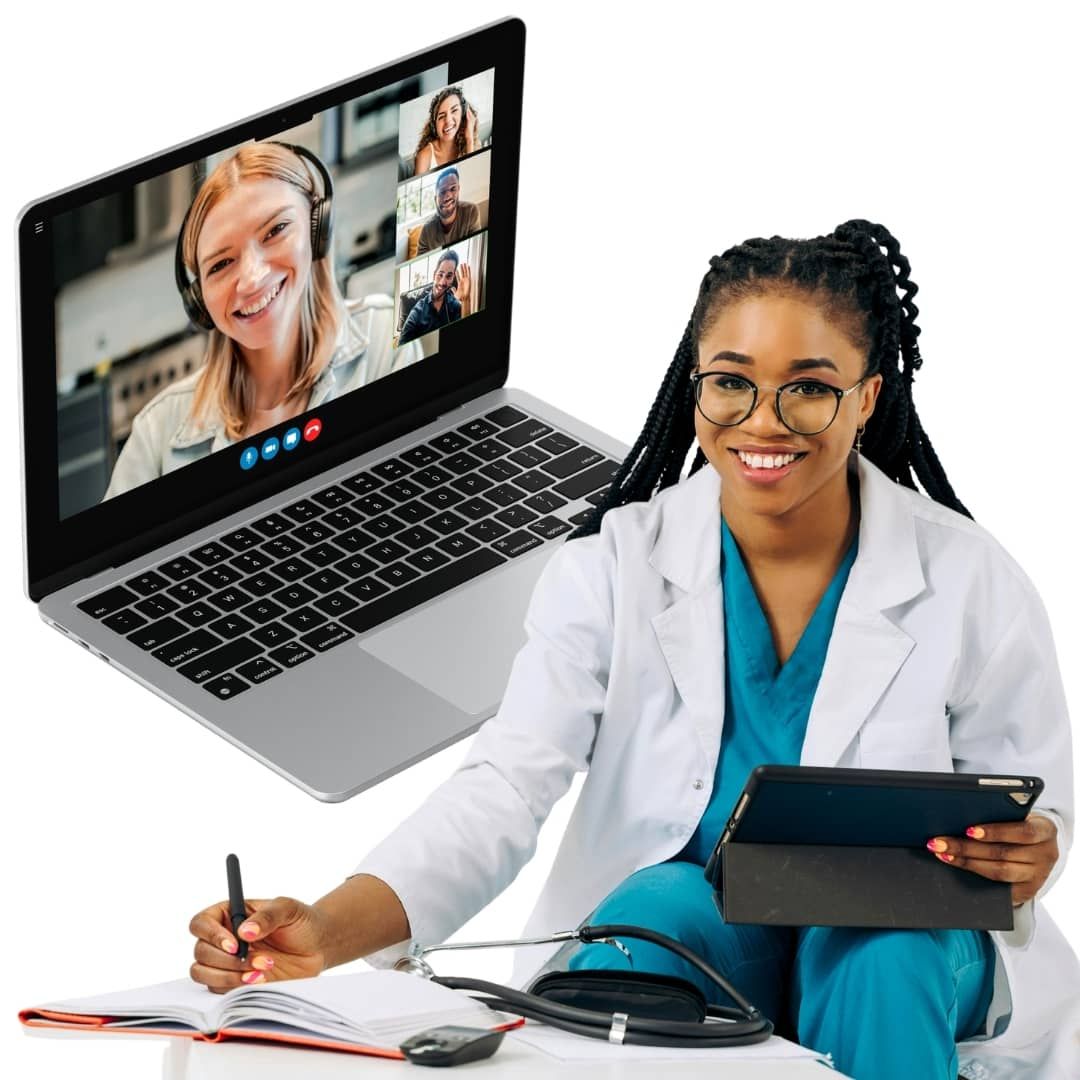Building your Healthcare Career After Phlebotomy Certification
Nov 04, 2024
Completing the phlebotomy course at FHCA is a significant milestone that opens the door to a variety of career opportunities in the healthcare field.
With a strong foundation in phlebotomy skills and knowledge, the next step is to navigate the path toward a successful and fulfilling career strategically.
Understanding why phlebotomists are important helps to highlight their role in accurate diagnostics, patient care, and supporting healthcare teams.
For those preparing to start their training, a common question is, what supplies do I need for phlebotomy class? Essentials typically include gloves, needles, tubes, a tourniquet, and antiseptic wipes, all crucial for practicing proper venipuncture techniques.
For those curious about the daily experience, a day in the life of a phlebotomist provides insight into the responsibilities and interactions that make this role fulfilling. Also, understanding the distinction between venipuncture vs phlebotomy is essential.
This guide outlines the key steps to take after earning your phlebotomy certification, from gaining practical experience to pursuing further education and specialization.
These steps will help you build a robust career in healthcare, leveraging the skills and knowledge acquired at FHCA.
Table of contents
- Immediate steps after certification
- Career opportunities
- Build a professional network
- Build hands-on experience
- Further education and specialization options
Immediate steps after certification
There are many benefits of being a phlebotomist who just completed a certification and several immediate actions to take that will set the stage for your career in healthcare.
These steps ensure that you are ready to apply your skills professionally and present yourself as a qualified candidate.
Getting your certification credentials in order
Make sure all your certification documents are complete and up-to-date.
Confirm that your official credentials are accessible, organized, and properly filed for the state in which you plan to work. This preparation is crucial for proving your qualifications when applying for positions.
Creating digital copies of certificates
Scan and save digital copies of all relevant certificates and credentials. Having electronic versions readily available allows you to quickly and easily submit applications online, streamlining the job search process.
Update your resume
Revise your resume to highlight your new phlebotomy certification and any relevant skills gained during your training.
Tailor your resume for phlebotomist positions to emphasize clinical competencies and professional attributes that make you an ideal candidate for entry-level healthcare roles.
Tailor your resume to emphasize clinical competencies and professional attributes that make you an ideal candidate for entry-level healthcare roles. Including a section that outlines your understanding of the phlebotomy procedure step by step can demonstrate your thorough preparation for the role, showcasing your attention to detail and expertise in standard protocols.
Career opportunities
A phlebotomy certification opens the door to various career opportunities where can a phlebotomist work in the healthcare sector.
Whether you're looking to start with an entry-level position or specialize in a specific area, the field of phlebotomy offers numerous paths for growth and professional development. While phlebotomists are primarily trained to draw blood, you might wonder, can a phlebotomist give injections?
“According to Indeed, there are over 300 job opportunities available for phlebotomists in Florida, making it an excellent region to start a career in this field.”
Entry-level positions
Starting your career as a certified phlebotomist opens doors to a variety of entry-level roles.
Opportunities include positions in hospitals, where you can gain experience in diverse medical settings; diagnostic laboratories, where you'll be part of a team conducting critical medical tests; and blood donation centers, where you play a key role in community health and blood supply.
Specialization options
As you gain experience, you can explore specialization areas to advance your career.
Consider pediatric phlebotomy, which focuses on blood collection in children, or geriatric phlebotomy, specializing in older patients.
Additionally, mobile phlebotomy services allow for more flexible work, visiting patients in various settings such as homes, offices, and nursing facilities.
Build a professional network
Building a strong professional network is essential for advancing your career in phlebotomy, as there are phlebotomists in demand.
This can open doors to new job opportunities, provide valuable industry insights, and help you stay informed about trends in the field.
Attend healthcare job fairs
Explore both local events and virtual networking opportunities to connect with potential employers and learn about current job openings.
These fairs are a great way to make a positive impression and gather information about different healthcare organizations looking for phlebotomy professionals.
Utilize social media
Improve your presence on professional platforms like LinkedIn by focusing on profile optimization and showcasing your skills, certifications, and experience.
Additionally, following healthcare organizations and relevant groups helps you stay updated on industry news and job opportunities while engaging with a community of like-minded professionals.
Build hands-on experience
Gaining practical experience is crucial for developing your skills and confidence as a phlebotomist.
By seeking information on how to get phlebotomy experience and real-world exposure, you not only enhance your expertise but also make yourself a more competitive candidate in the job market.
Internship opportunities
Internships are crucial because they provide a structured environment where new phlebotomists can apply their theoretical knowledge in real-world settings.
Working alongside experienced professionals helps build confidence, improve technique, and develop a deeper understanding of clinical workflows.
This experience makes candidates more attractive to future employers by showcasing their ability to perform under guidance.
Volunteer at hospitals and clinics
Volunteering is a valuable way to gain exposure to the healthcare environment without the pressure of a paid position.
It allows aspiring phlebotomists to interact with patients, practice essential skills, and observe medical procedures.
Volunteering demonstrates a commitment to the field, enhances a resume, and often leads to professional references, which are vital for job applications.
Participate in internship programs
Internship programs allow new phlebotomists to transition smoothly from education to employment.
These programs often include formal training, performance evaluations, and mentorship, offering a comprehensive experience that equips participants with the skills needed for a successful career.
Completing an internship program shows employers that a candidate has received hands-on training under real clinical conditions.
Network with healthcare professionals for opportunities
Networking is essential because many job opportunities arise through professional connections.
Building relationships with healthcare professionals can lead to job referrals, mentorship, and insider knowledge about the industry.
These connections can also guide career development, help identify specialization areas, and increase visibility in the job market, giving candidates a significant advantage.
Further education and specialization options
After obtaining your phlebotomy certification, further education can improve your skills and open up new career opportunities in healthcare. FHCA Academy offers a variety of specialized certifications and training programs to help you advance and diversify your qualifications.
Certifications you can pursue after phlebotomy:
The EKG program at FHCA provides comprehensive knowledge, skills, and practical training to become a certified EKG Technician.
The curriculum covers the operation of electrocardiograph machines, heart rhythm interpretation, and identification of cardiac abnormalities.
Upon completion, participants are qualified to work as Electrocardiograph Aides, EKG Technicians, or Monitor Technicians, contributing significantly to cardiac care.
- Program Cost: $750
- Program Duration: Choose between a 4-week Monday through Friday schedule or a 9-week Saturday-only schedule.
Infection control certification
The Infection Control Certification focuses on the critical importance of infection prevention in maintaining a safe clinical environment.
This program equips participants with the skills needed to effectively minimize infection risks, enhancing their value in any healthcare setting.
- Course Details: A 6-credit-hour CEU, designed for flexibility, allowing you to complete the certification at your own pace from the comfort of your home.
- Cost: $35.00 USD
Blood transfusions & products CEU
The Blood Transfusions & Products Certification offers specialized training in managing blood products and performing safe transfusions, strengthening your expertise in critical care and laboratory settings.
- Course Details: A 6-credit-hour CEU, designed for self-paced learning from the convenience of your home.
- Cost: $35.00 USD
The HIV/AIDS Certification focuses on understanding the transmission, prevention, and care related to HIV/AIDS, essential knowledge for professionals working in diverse healthcare environments.
- Course Details: A 4-credit-hour CEU, allowing you to complete the certification at your own pace from the comfort of your home.
- Cost: $35.00 USD
The OSHA Certification ensures comprehensive knowledge of workplace safety standards, vital for compliance and maintaining a secure working environment in healthcare settings.
- Course Details: A 4-credit-hour CEU, designed for flexible, self-paced completion from the comfort of your home.
- Cost: $35.00 USD
Additional training programs
These additional certifications and training programs provide a path to specialize further, enhance employability, and expand your role within the healthcare sector.
The Medical Assistant Program provides the comprehensive knowledge, skills, and hands-on training required to excel in clinical environments.
Participants will master patient assessments, vital signs, EKGs, injections, blood draws, and medical record management.
The program also covers assisting in minor procedures, managing administrative tasks, and patient education, preparing graduates to support healthcare providers and patients effectively.
- Program Cost: $6,550 (Payment Plans Available)
- Program Duration: Choose between a 12-week Monday through Friday schedule or a 24-week Saturday-only schedule.
The Home Health Aide Program offers the essential knowledge, skills, and hands-on training needed to provide high-quality care to patients in various settings, including homes, nursing facilities, hospices, and retirement communities.
Participants will learn to take vital signs and assist with hygiene, personal care, bed preparation, and catheter care.
Additionally, the program covers supporting mobility, monitoring nutrition, offering companionship, and aiding with daily living activities.
- Program Cost: $890
- Program Duration: Choose between a 6-week Monday through Friday schedule or a 13-week Saturday-only schedule.
Nursing assistant training program
It equips you with the skills to support nurses in various clinical environments, performing tasks like vital sign monitoring, patient care, and assisting with medical procedures. This training is a solid foundation for those considering a career in nursing.









